Are Allergies the New Plague? -Guest Post
By: Mira Rakicevic, Sleep Expert at DistrubMeNot!, with several photos from their beautiful NEW infographic that can be found in its entirety HERE.
Allergies have become frightfully frequent in recent years. More than 50 million Americans are affected by allergies every year. This is especially worrisome for parents whose children suffer from allergies and asthma, which often occurs with and can be triggered by allergies.
The questions that stem from this situation are:
- Why is this happening?
- How to deal with it most effectively?
- What can I do as a parent if my child is suffering from allergies?
The responses to these questions are neither simple nor are they definitive. Yet, by learning about it and, perhaps even more importantly, by learning how to deal with allergies effectively, the stress for parents of affected children and people who suffer from allergies can be reduced, if not completely eliminated.
Why Do Allergies Happen?
Allergies occur when a glitch happens in our immune system and it confuses a harmless substance such as a certain food or medication, pollen, dust mites, latex, mold, animal dander, or insect stings as something dangerous to you.
The reaction your body produces might range from mild such as itchy eyes, a runny nose, coughing and sneezing, to severe reactions such as eczema, and anaphylaxis.
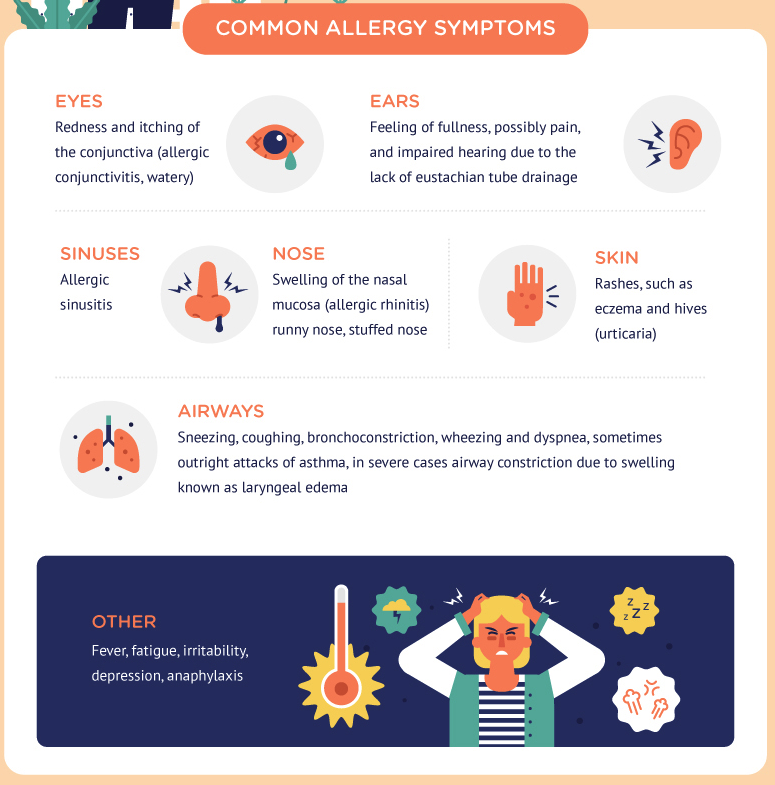
Why this glitch happens is another issue altogether does not have a simple answer. Even though the theories are abundant, neither one explains conclusively why allergies happen and why they are now such a huge health hazard. Just because a person never had any problems growing up or even into their late 20s and early 30s, it does not mean they are safe from allergies as adult-onset allergies are also on the rise.
The Cause(s) of Allergies
Theories are abundant as to why allergies are on the rise but are inconclusive.
One of the most well-known explanations is connected to hygiene. To be precise, an overabundance of cleanliness. We all know the old adage of “Cleanliness is next to godliness” (our children’s ears are burning from it), but it seems we might have taken the whole thing a bit too far. Since our living conditions have become so much better and clean, our immune system lacks exposure to bacteria, which then sometimes becomes more susceptible to allergies.
Other theories state that the higher levels of pollution, unhealthy diets, sedentary lifestyles, and poor ventilation may also be to blame as well as our genetics. Some research even suggests that frequent use of antibiotics and acetaminophen (especially if used at an early age) may increase the risk of both allergies and asthma.
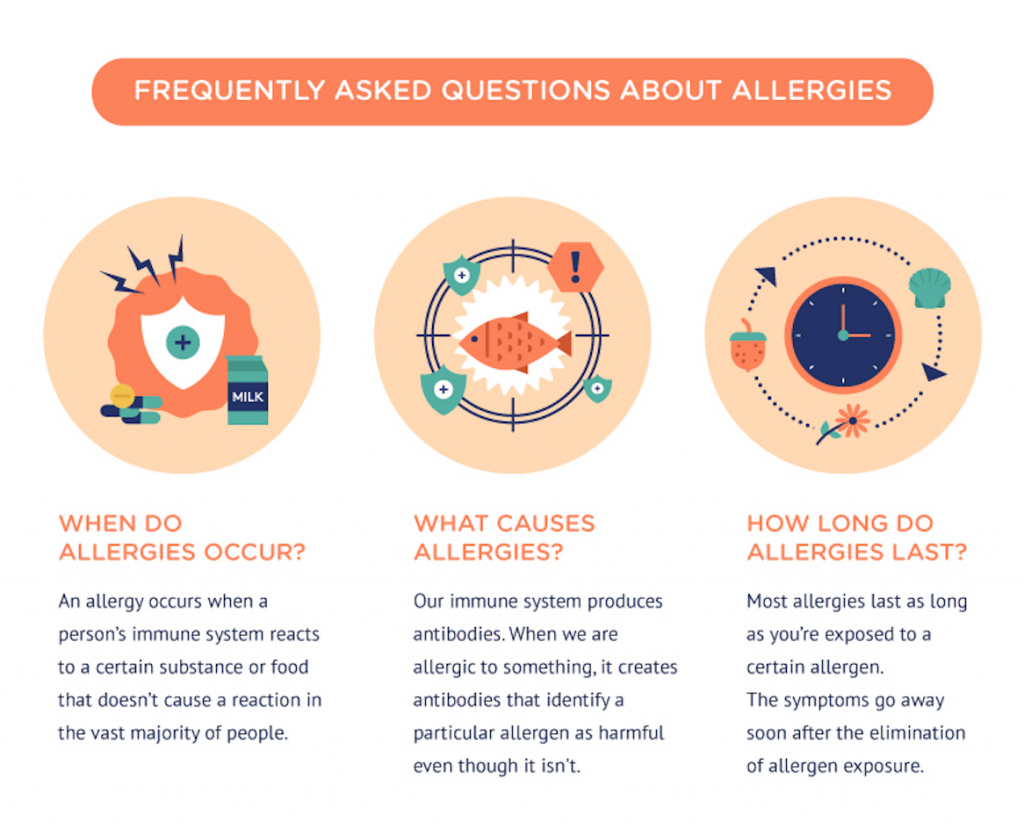
What to Do if Allergies Become Your Constant Companion?
In most cases, allergies are here to stay as there is no cure for them. Avoiding allergens you know that are problematic for you is the first step, as are modifications in your lifestyle. However, sometimes it is simply not possible to protect yourself from allergens, which are all around us such as dust and pollen. In cases such as these, some form of immunotherapy is usually the best way to proceed. Immunotherapy can include allergy tablets or drops as well as allergy shots.
Allergy Shots
Allergy shots are known to provide the best results as they contain small amounts of substances that trigger allergies but not enough to cause a reaction. By injecting an allergy sufferer with a tiny dose of allergen, the immune system is stimulated and hopefully, over time, a the body is desensitized and the person slowly builds up their tolerance to allergens causing problems for them.
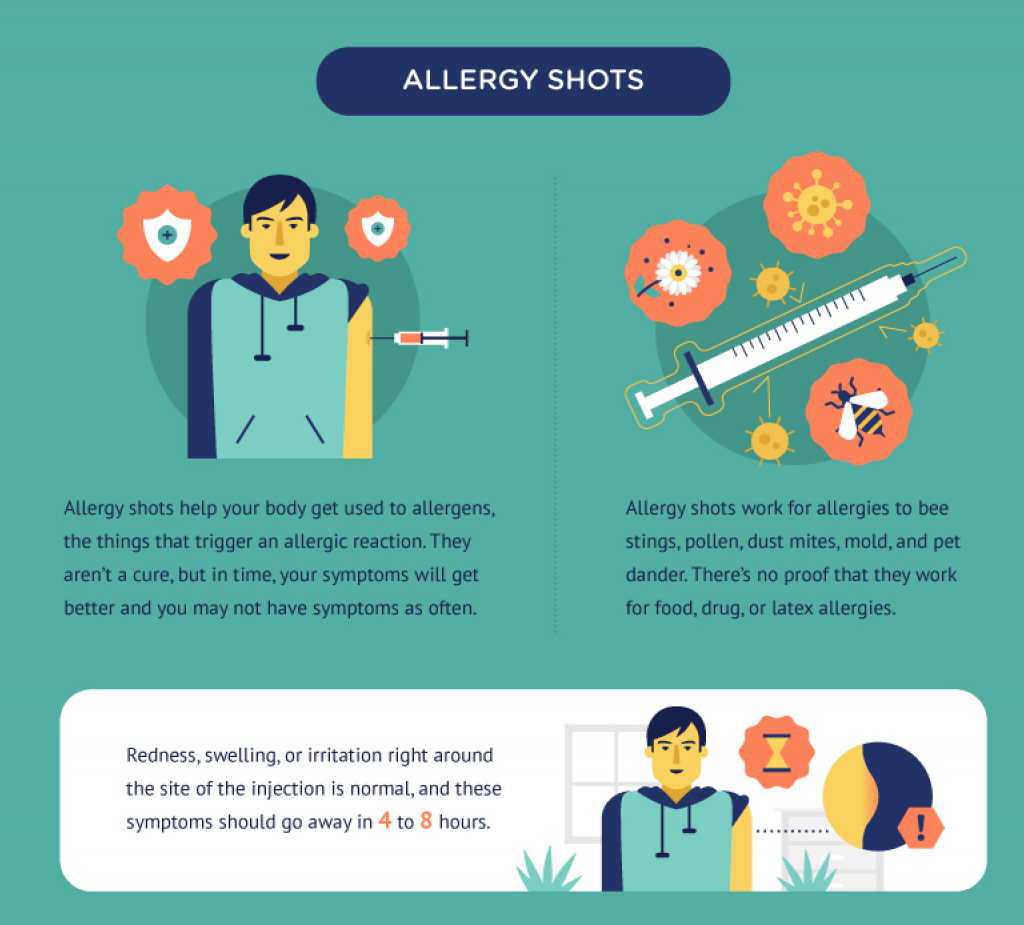
Allergy Tablets and Drops
Allergy tablets and drops are also available means of dealing with allergies, but, unlike allergy shots, tablets and drops only alleviate symptoms and not change the immune system. However, they are less expensive and a person needn’t pay a visit to the doctor’s office to take them as is the case with allergy shots.
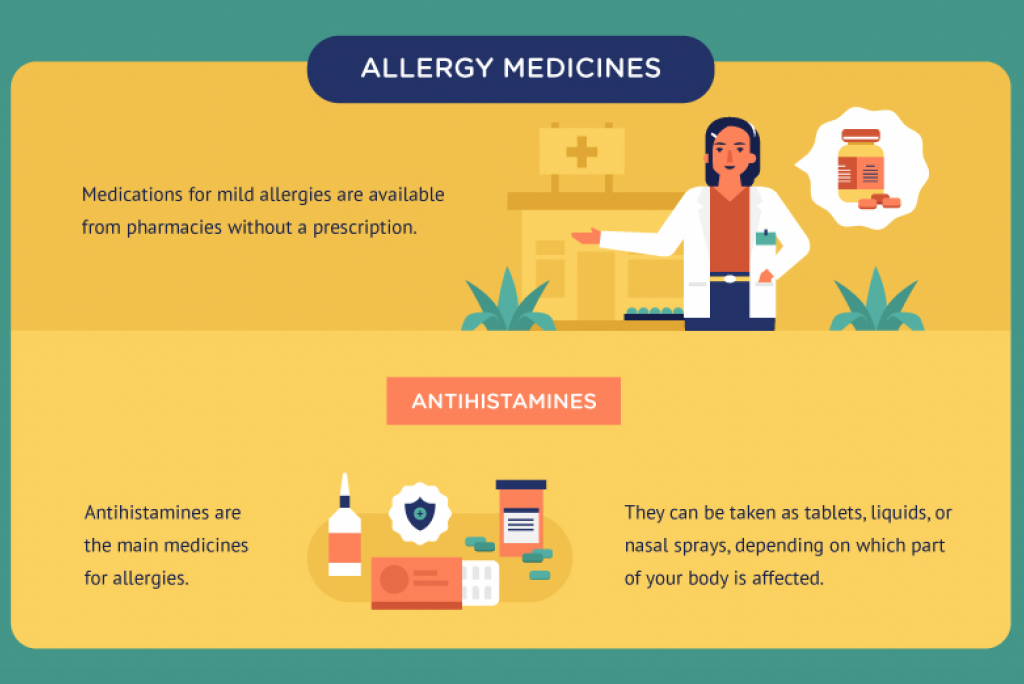
The ABC for Parents whose Child Suffers from Allergies
Even when your child has no health issues, parenting is stressful, and are predisposed to see danger for our precious darlings just about everywhere. This skyrockets when a child has health problems.
When dealing with your child’s allergies, besides knowing all they can do about the allergens known to trigger their child’s allergic reaction and always caring medications with them, parents also need to teach their children how to self-manage their allergies. Of course, this is only done when a child is at the age when this is possible.
If a child is of school age, teachers need to know about the child’s allergies and what to do in case a child suffers an allergy attack. This same principle should be followed whenever a child is out of the parent’s supervision, such as at playdates, birthdays, school trips, or staying with grandparents and relatives.
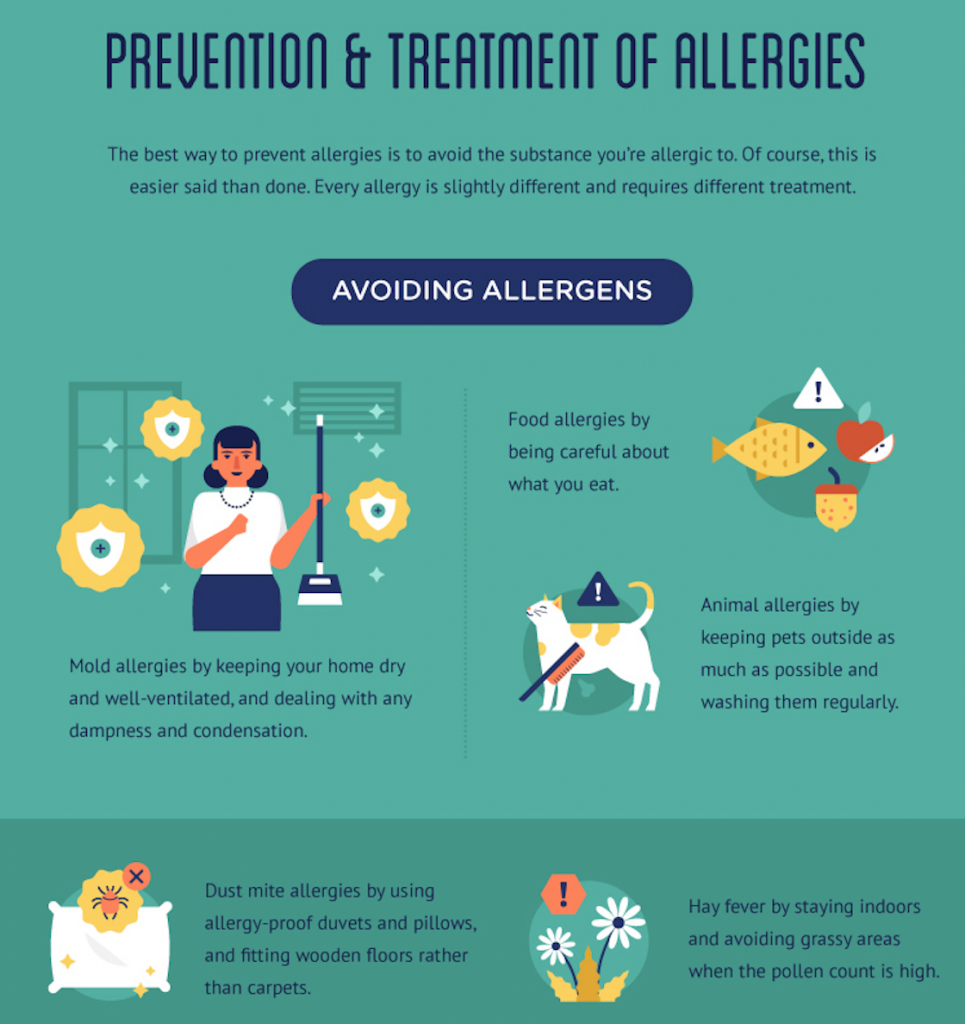
Conclusion
Caution, as well as being alert and observant of their surroundings is a way of life for those suffering from allergies. Living and dealing with allergies is not easy and this condition certainly has an impact on the quality of life of those afflicted. However, it is manageable considering the broad spectrum of available medication and therapy.
The infographic photos are part of a larger, beautiful infographic that can be found HERE.

Author: Mira Rakicevic, Sleep Expert at DistrubMeNot!
“Before I started working as a sleep expert, I always envied people who were passionate about their jobs. Now I finally have an opportunity to do something I truly enjoy, and no, I can’t sleep at work! For me, it’s definitely as good as it gets—as I spend a considerable amount of time lying down on various mattresses, testing sleeping products, and reviewing them to help guide you to your ideal sleeping situation. Plus, I work tightly with other sleep experts and doctors to provide you with valuable information and helpful advice about sleep.”


